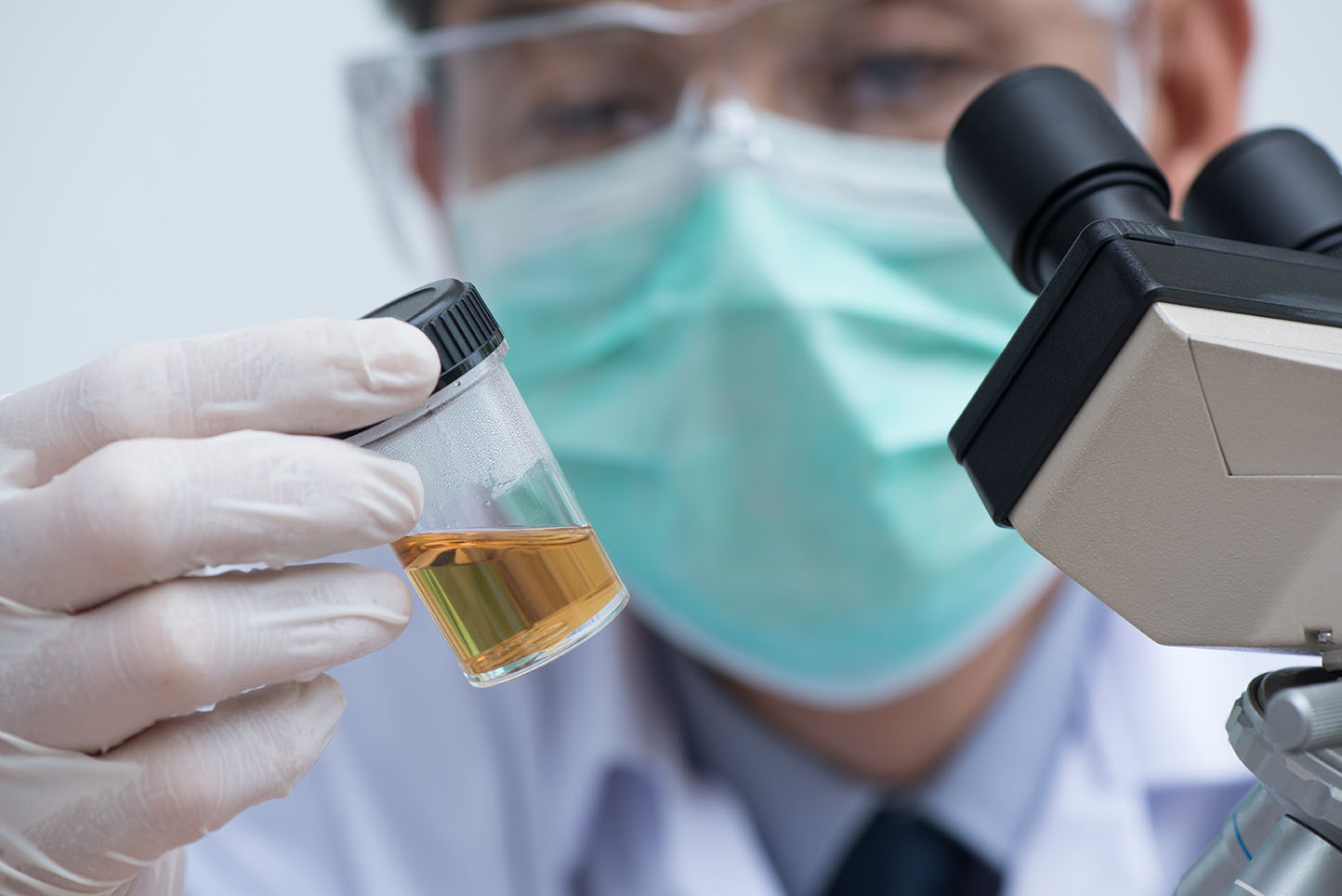
urine
Definition
Urine is a liquid waste product that is produced by the kidneys. It is made up of water, urea, salts, and other substances.
The kidneys filter the blood to remove waste products and water. The filtered water and waste products are then carried to the bladder by the ureters. The bladder stores urine until it is released from the body through the urethra.
The colour of urine can vary depending on what you eat and drink. For example, if you eat beets, your urine may turn pink or red. If you take certain medications, your urine may also change colour.
The amount of urine you produce each day depends on how much fluid you drink and how much water your body needs to remove waste products. On average, adults produce about 1 to 2 litres of urine per day.
How can the word be used?
The patient's urine was clear and free of sediment.

Different forms of the word
Noun: urine (plural: urines).
- the liquid waste product of the kidneys.
Adjective: urinary.
- relating to urine.
Verb: to urinate.
- to pass urine.
Etymology
Latin: ūrīna, ūrīna (pronounced "oo-ree-nah").
Proto-Indo-European: wrē- (pronounced "wer-").
The Latin word ūrīna comes from the Proto-Indo-European root wrē-, which means "to wash" or "to cleanse". The word ūrīna originally referred to the liquid that was used to wash the body, but it later came to refer specifically to urine.
The word "urine" was first used in English in the 14th century. It was borrowed from the Middle French word urine, which was also borrowed from the Latin word ūrīna.
Question
What is urine?
AQA Science Exam Question and Answer
Question:
Explain the composition of urine and its role in maintaining the body's homeostasis. Discuss the process of urine formation, including the key steps that occur in the nephrons of the kidneys.
Answer:
Urine is a complex fluid that serves as a waste product of the body's metabolic processes and plays a critical role in maintaining overall homeostasis. It is primarily composed of water, along with various dissolved substances, including urea, creatinine, electrolytes, and waste products.
The formation of urine occurs in the kidneys through a sophisticated process that involves filtration, reabsorption, and secretion in the nephrons. The nephrons are the functional units of the kidneys responsible for filtering blood and producing urine. Blood is initially filtered in the glomerulus, a network of capillaries within the nephron, where water and small solutes pass into the renal tubules while larger molecules, such as proteins and blood cells, are retained.
As the filtrate moves through the renal tubules, essential substances like glucose, ions, and water are reabsorbed back into the bloodstream, ensuring the body retains the necessary components. Simultaneously, excess waste products and ions are secreted into the tubules. This selective reabsorption and secretion process leads to the concentration and composition of urine.
Ultimately, the collected urine from multiple nephrons is drained into the renal pelvis and then flows into the bladder through the ureters. The bladder stores urine until it is excreted from the body through the urethra during urination.